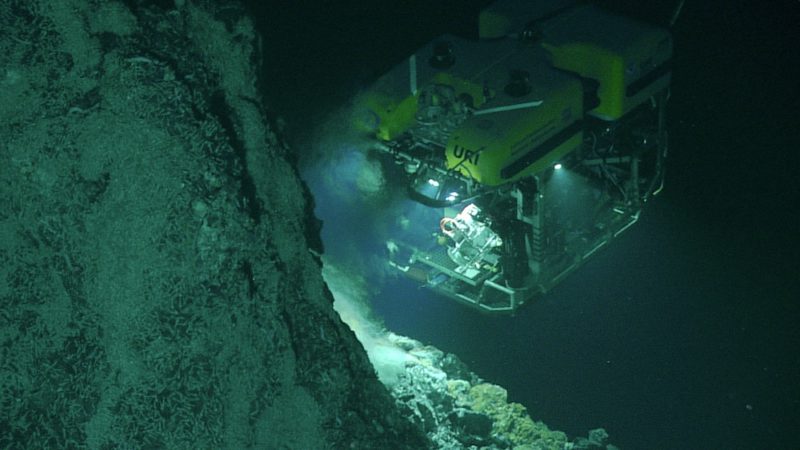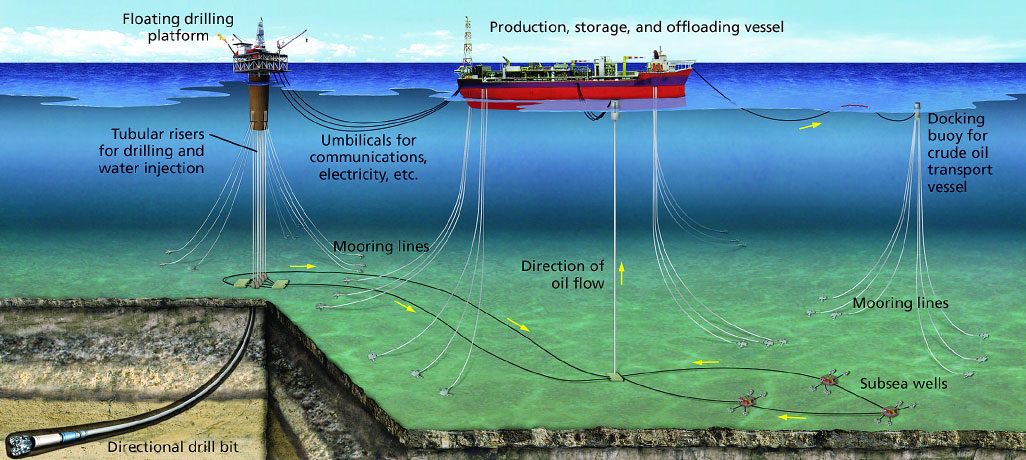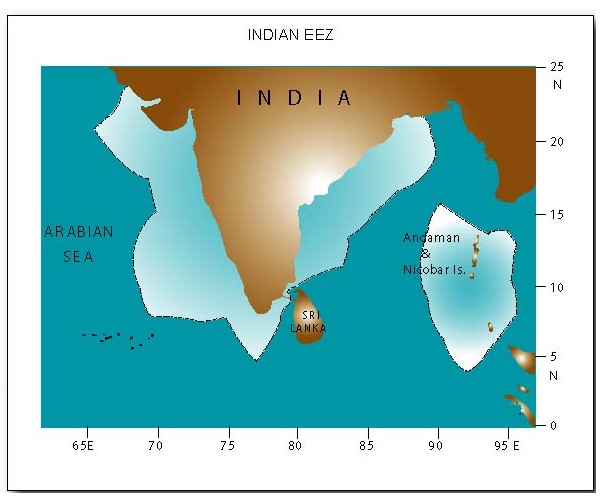Deep Ocean Mission – India’s Quest towards Prosperity and Security

The Central government has formulated a 5 year, Rs 8,000 crore plan to explore the deep parts of the Ocean for the possibilities of deep-sea mining. Union Ministry of Earth Sciences is tasked with coordinating the exercise and it recently unveiled a blueprint of the Deep Ocean Mission (DOM). The Mission proposes to explore the deep ocean similar to the space exploration started by Indian Space Research Organization (ISRO) about 35 years ago.
What are the key features of the Mission?
- Its focus will be on technologies for deep-sea mining, underwater vehicles, underwater robotics and ocean climate change advisory services etc.
- Key objectives to achieve these goals are
- Desalination plant powered by tidal energy.
- Submersible vehicle to explore depths of at least 6000 Meters with three people on board.
- It will not only involve the Union Ministry of Earth Sciences (MoES), but also other ministries like science and technology, and the biotechnology etc.
Also read: Precision Farming – Features, Merits, Demerits and Challenges
What is the need?
- As much as the ISRO has been exploring vast areas of space from the moon to mars, there is a very little progress when it comes to the Ocean.
- India has a vast 7,500 km of coastline along with a 2.4 million square km of Exclusive Economic Zone (EEZ). Note- EEZs are boundaries prescribed by the UN convention on the law of the sea (UNCLOS) which give special rights to a country with respect to the exploration and use of marine resources.
- Oceans in these EEZ hosts a huge amount of natural resources and mining opportunities such as iron, nickel, manganese, and cobalt.
- Also recently, India has been allotted vast area in the Central Indian Ocean Basin (CIOB) by the UN International Seabed Authority (ISA) for the exploitation of Polymetallic nodules.
- The mission is meant to harness these ocean resources and opportunities in a responsible way.
- Moreover, China has been working on a deep-sea mission for mining mineral deposits in the Indian and Pacific Oceans. India also needs to utilize its potential to the maximum.
What is the significance of the mission?
- It is estimated that 10% of recovery of the ocean resources can meet India’s energy requirements for the next 100 years.
- India’s EEZ has about estimated resource of about 100 million tons of strategic metals such as copper, nickel, cobalt etc that will significantly boost Indian economy.
- It will play a significant role in the security of the nation as many critical military technologies rely heavily on rare earth elements which are abundant in Ocean.
- It will also create jobs and business opportunities in ocean science and improve the prosperity of the nation.
- It is not just the mining, researching and studying about the ocean floor, the mission can also help us form solid decisions on Climate Change.
- Information from deep-ocean exploration can help predict earthquakes and tsunamis.
- It can also help us in innovating technologies from underwater vehicles to underwater robotics.
- Unlocking the mysteries of deep-sea ecosystems can reveal new sources for medical drugs, food, and other products.
- Ocean exploration can improve ocean literacy and inspire young people to seek careers in science, technology, engineering, and mathematics.
Also read: Reusable Launch Vehicle (RLV) – The Road to Cheap Space Travel
What are the disadvantages of the Mission?
- Deep ocean exploration involves huge expenditure due to the usage of various state-of-the-art technologies such as pressured submersibles to carry people or remote controlled vehicles.
- Deep-sea mining involves depositing huge tons of waste rocks onto the seabed, potentially destroying the habitats of some deep-sea organisms.
- An even more worrying aspect is the accidental spillage due to the release of toxic ore and fuel into the surrounding area., threatening the marine organisms and ecosystem.
Way forward
Deep sea exploration is still an unchartered area, if not careful, then it would lead to severe environmental damages that could threaten the marine ecosystem and in the long term, other ecosystems as well. Hence India should harness the ocean resources in a responsible manner with respect to its sustainable development goals.
If you like this post, please share your feedback in the comments section below so that we will upload more posts like this.




